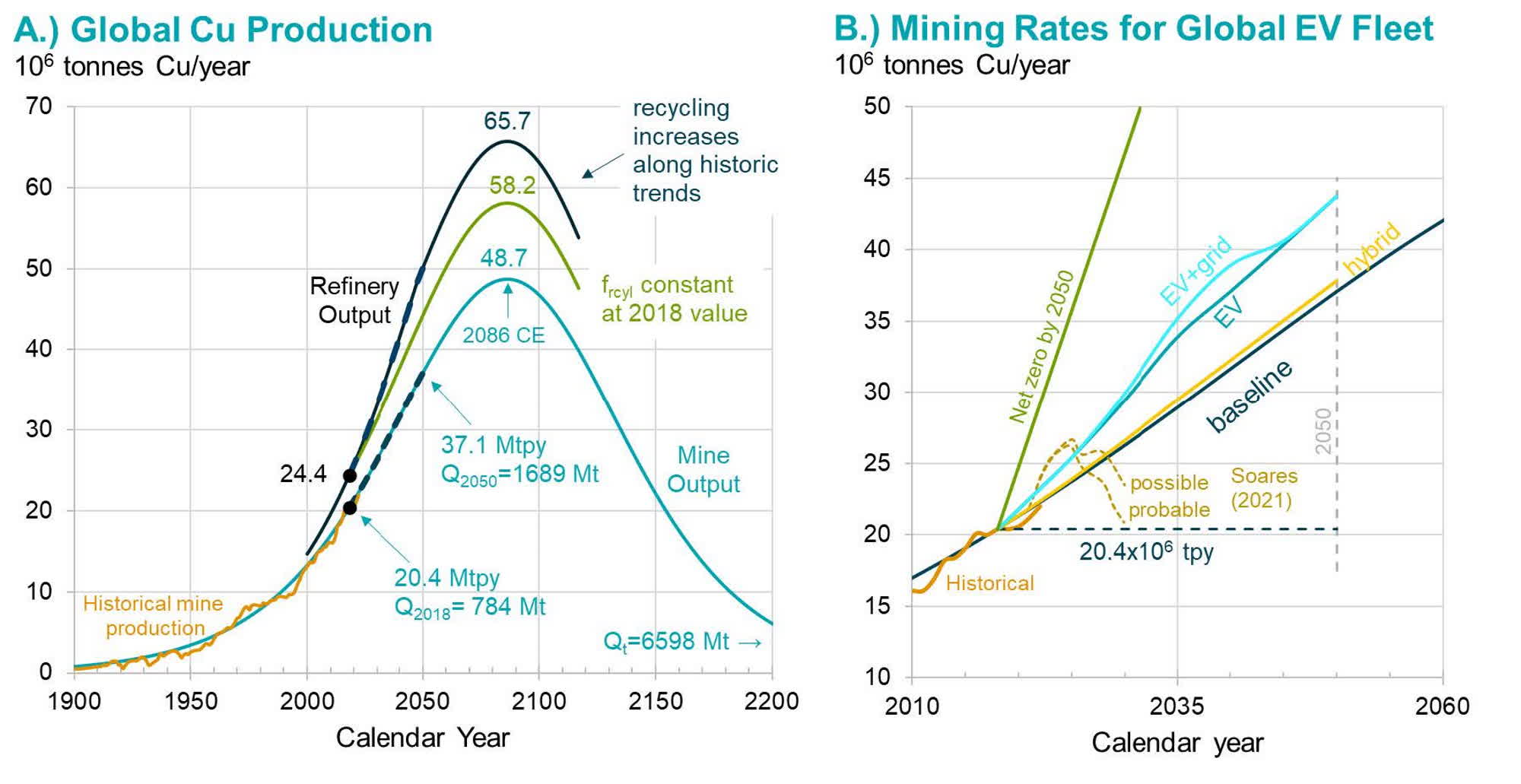Forward-looking: A new paper provides a concerning projection for copper supply over the next few years and the effects it could have on the development of EV technology. Significantly more copper mines will be needed, or we could adapt the hybrid model to achieve the best results for both greenhouse gas emissions and supply requirements.
Copper is essential for the future of EV technology, and recycling alone will likely not be enough to meet the automotive industry's needs. According to a recent paper by the International Energy Forum (IEF), humanity is likely to face a significant supply issue soon if we do not find a way to either meet the increasing demand for the metal or drastically change our electrification efforts.
Copper plays a crucial role in the future of humanity, the IEF stated, as it is vital for generating, delivering, and storing electricity. Electrification will shape the future, and its rate will be dictated by copper availability and demand within current climate policies. Previous studies have expressed concerns about copper supply, with a "seemingly universal presumption" that more copper will "somehow" be available to properly fuel the green transition.
The IEF's paper projects copper supply and demand from 2018 to 2050, placing both in the historical context of copper mine output. The world will need to mine 115 percent more copper in the next 30 years just to meet current "business-as-usual" trends, the organization said, with 55 percent more copper mines required to electrify the global vehicle fleet.
The IEF stated that copper exploration and mine development need to be encouraged in the long term, with both the US and the EU working to extend "responsible" mining efforts within their respective continents. Advanced technologies are required to explore copper deposits located deeper underground, and "vast amounts" of land must be made available for these exploration efforts. Ocean mining should also be considered.
An alternative solution to larger and more intensive mining efforts could be partial electrification within the hybrid automotive market. Hybrid vehicle manufacturing requires only a marginally higher amount of copper (29kg) compared to internal combustion engine vehicles (24kg), according to the IEF, while battery-based EV manufacturing requires 60kg.
A total transition to hybrid manufacturing would result in just a "slight" increase in global copper demand, the report states, and it would not require significant improvements in grid electricity distribution. Furthermore, hybrid vehicles could have almost the same positive impact on greenhouse gas emissions and major city pollution levels as total electrification. It's not a perfect solution, the IEF said, but it could be a much more realistic one when considering resource availability and mining prospects.

